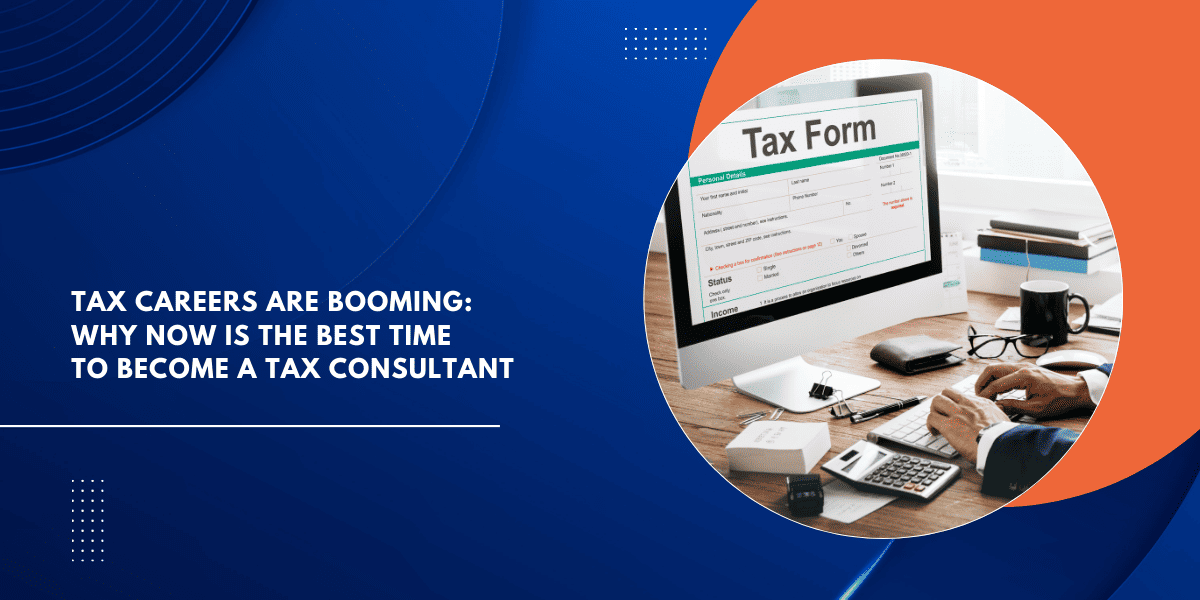Hey there!
If you love technology, problem-solving, and innovation, then becoming a cloud architect might be the perfect career path for you! You might be asking yourself, how to become a cloud architect? Well, let’s dive in!
Whether you’re a student considering your future or a professional looking to switch careers, cloud architecture offers an exciting and high-paying opportunity.
As businesses increasingly shift to cloud computing, the demand for skilled cloud architects is skyrocketing.
According to a 2024 report by Gartner, global spending on public cloud services is expected to reach approximately ₹58.27 trillion by 2025, reflecting the massive demand for cloud technology. With companies shifting more of their infrastructure to the cloud, cloud architects are among the highest-paid IT professionals. Their salaries average between ₹12.01 million to ₹15.44 million per year, depending on experience and location.
But where do you start? Let’s explore how to become a cloud architect and what it takes to succeed in this field!
Introduction to the Career
Cloud computing is no longer the future—it’s the present. From startups to Fortune 500 companies, businesses rely on cloud solutions to store data, run applications, and optimize operations. Cloud architects are at the heart of this transformation, designing scalable, secure, and efficient cloud environments.
According to the US Bureau of Labor Statistics (BLS), employment opportunities in cloud computing are expected to increase by 15% between 2021 and 2031, a rate significantly higher than the average for other professions.
The Job as a Cloud Architect
High Demand & Job Security
Cloud computing is the backbone of modern businesses. Every industry—from healthcare to e-commerce—relies on cloud technology. This means cloud architects will continue to be in high demand, offering long-term job security and opportunities for career growth.
Lucrative Salaries & Career Growth
Cloud architects are among the best-paid IT professionals, with the potential to advance into leadership roles like Chief Cloud Officer (CCO) or CTO. Whether you work for a tech giant like Amazon or Google, or a growing startup, the earning potential is incredible.
Work from Anywhere
One of the greatest perks of working in cloud architecture is flexibility. Many companies offer remote work options, allowing you to design cloud systems from anywhere in the world. Plus, cloud skills are globally recognized, making it easy to find opportunities abroad.
Always Something New to Learn
Technology evolves rapidly, and cloud computing is at the forefront of innovation. From serverless computing to AI-driven cloud solutions, there’s always something new to explore. If you love learning and staying ahead of tech trends, this field will keep you engaged.

Key Responsibilities of Cloud Professionals
Cloud Architect
- Designs and implements cloud computing strategies for businesses, ensuring scalability and security.
- Works with cloud service providers like AWS, Google Cloud, and Microsoft Azure to create optimized cloud-based solutions.
- Manages cloud infrastructure, including networking, storage, and security protocols.
- Develops disaster recovery plans and ensures high availability of cloud-based applications.
- Collaborates with DevOps, security teams, and developers to build efficient cloud environments.
Cloud Security Engineer
- Focuses on securing cloud infrastructure by implementing encryption, access controls, and threat monitoring.
- Conducts vulnerability assessments and penetration testing to identify security risks.
- Ensures compliance with security regulations like GDPR, HIPAA, and SOC 2.
- Implements best practices for identity and access management (IAM) and multi-factor authentication (MFA).
Cloud DevOps Engineer
- Automates cloud deployment processes using Infrastructure as Code (IaC) tools like Terraform and AWS CloudFormation.
- Builds CI/CD pipelines to streamline software delivery and updates in cloud environments.
- Monitors cloud applications for performance optimization and cost efficiency.
- Works with containerization tools like Docker and Kubernetes for efficient cloud resource management.
Data Engineer (Cloud)
- Designs and manages data storage solutions on cloud platforms, ensuring data integrity and security.
- Works with cloud-based databases like Amazon RDS, Google BigQuery, and Azure SQL.
- Develops data pipelines for real-time analytics and machine learning applications.
- Ensures data compliance with industry regulations and best practices.
Work Environment
The cloud computing industry offers a dynamic and flexible work environment. Cloud Architects can work in various settings, including:
Where Do Cloud Architects Work?
- Tech Giants and Cloud Service Providers: Companies like Amazon, Google, and Microsoft hire cloud architects to design and manage large-scale cloud solutions.
- Enterprises and Financial Institutions: Organizations in banking, healthcare, and e-commerce rely on cloud architects to ensure secure and efficient cloud operations.
- Consulting Firms: Many cloud architects work as consultants, helping businesses transition to cloud-based infrastructures.
- Startups and Remote Work: With the rise of cloud computing, many startups offer remote positions for cloud professionals.
What’s Work Culture Like?
- Highly Collaborative: Cloud Architects work closely with DevOps teams, security engineers, and developers.
- Continuous Learning: The cloud industry evolves rapidly, requiring professionals to stay updated with the latest technologies and certifications.
- Flexible Work Options: Many companies offer remote or hybrid work arrangements for cloud professionals.
Educational Pathways & Required Qualifications
If you’re wondering how to become a cloud architect, the journey typically involves gaining the right education, hands-on experience, and cloud certifications.
Start with a solid understanding of IT fundamentals like networking, databases, and security. A degree in Computer Science, Information Technology, or a related field can be beneficial, but it’s not always necessary if you have relevant experience and certifications.
Bachelor’s Degree Programs (3-4 years)
A strong foundation in cloud computing starts with a bachelor’s degree in computer science or a related field.
Course Names
B.Tech in Cloud Computing & Virtualization
B.Tech in Computer Science & Engineering (CSE) with Cloud Computing
B.Sc. in Cloud Computing & Cyber Security
Master’s Degree Programs (1-2 years)
For those looking to specialize further, a master’s degree can open doors to senior cloud architect roles.
M.Tech in Cloud Computing
M.Sc. in Cloud Computing
Entrance Exams to Get into UG/PG Courses in Cloud Computing
Necessary Soft Skills & Technical Abilities
To excel as a Cloud Architect, you need a blend of technical skills, problem-solving abilities, and effective communication.

Essential Technical Skills
- Cloud Platforms: Gain expertise in AWS, Google Cloud, and Microsoft Azure for deploying and managing cloud services.
- Networking & Security: Learn VPNs, firewalls, and encryption techniques to secure cloud environments.
- Infrastructure as Code (IaC): Use Terraform and AWS CloudFormation to automate cloud infrastructure management.
- DevOps & Automation: Master Docker, Kubernetes, and CI/CD tools for efficient cloud deployment and automation.
- Programming Languages: Develop cloud applications using Python, Java, and Bash scripting.
- Database Management: Work with SQL, NoSQL, and cloud-based storage solutions for data handling in the cloud.
Soft Skills for Success
- Problem-Solving Mindset: Key for designing scalable, efficient, and reliable cloud solutions.
- Critical Thinking: Helps assess security threats, optimize cloud costs, and improve system performance.
- Communication Skills: Essential for explaining cloud architectures to teams and stakeholders clearly.
- Adaptability: Stay updated with evolving cloud technologies to remain competitive in the industry.
With the right education, hands-on experience, and industry certifications, you can successfully navigate how to become a cloud architect. This career offers exciting opportunities, competitive salaries, and the ability to work with cutting-edge technology in a constantly evolving field.
Career Progression and Growth Opportunities
Through my research, I’ve found that cloud architects are responsible for designing, managing, and securing cloud infrastructure. Whether it’s AWS, Azure, or Google Cloud, companies need experts who can ensure their cloud environments are efficient and cost-effective. If you’re considering how to become a cloud architect, it’s important to understand the career roadmap and key skills required to excel in this field.
Career Levels in Cloud Architecture
From what I have seen, here’s how a career in cloud architecture typically progresses:
- Entry-Level: Cloud Engineer, Cloud Administrator, DevOps Engineer
- Mid-Level: Cloud Solutions Architect, Cloud Security Engineer, Cloud Consultant
- Senior-Level: Senior Cloud Architect, Cloud Engineering Manager, Cloud Infrastructure Director
- Specialized Roles: Multi-Cloud Architect, AI/ML Cloud Architect, Serverless Computing Specialist
Salary Expectations & ROI-ROT
Return on Investment (ROI):
Cloud computing is one of the most lucrative career paths today. Here’s a quick look at the investment and potential returns:
- Education Costs: A bachelor’s degree in IT or Computer Science costs ₹3-15 lakh. Master’s degrees or certifications (AWS, Azure, Google Cloud) may add ₹1-5 lakh more.
- Salary & Earnings Potential: The initial investment is around ₹4-20 lakh, but within 3-10 years, professionals can earn ₹15-50+ LPA, depending on experience and specialization.
Return on Time (ROT):
- Education Duration: 3-4 years for a Bachelor’s degree, 1-2 years for a Master’s degree, and 6 months to 1 year for industry certifications.
- Time to Break Even: 2-4 years based on salary expectations.
- Fast-Track Option: Bootcamps, cloud computing certifications, and hands-on projects can help accelerate career growth.
Future Prospects: The Next 20-30 Years
The future of cloud computing is nothing short of revolutionary! Over the next 20–30 years, advancements in AI, edge computing, and quantum cloud computing will redefine how businesses operate. Companies will continue investing heavily in cloud solutions, and skilled cloud architects will remain in high demand.
I see a bright future for cloud architects in industries like healthcare, finance, artificial intelligence, and cybersecurity. Emerging technologies like serverless computing, containerization (Docker, Kubernetes), and hybrid cloud solutions will drive innovation, making this an exciting field to be in!
If you love designing scalable systems and solving complex infrastructure challenges, how to become a cloud architect should be your next big question!
Curious if Cloud Architecture is the right path for you?
Final Thoughts
If you’re thinking about becoming a cloud architect, now is the perfect time to start! Businesses across the globe are adopting cloud solutions at an unprecedented rate, and they need professionals who can design secure and efficient cloud infrastructures.
So, what do you think? Ready to explore the world of cloud architecture? I hope this guide helps you understand the career paths for cloud architects and make the right career choice. If you have any questions, drop them in the comments—I’d be happy to guide you further!






















